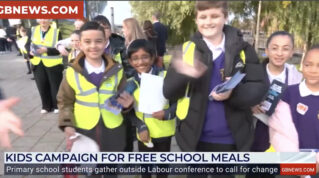At Big Education, our goal is to deliver a big, fat, juicy, enriched, meaningful, inclusive and purposeful education. Labour has begun to shift the system in this direction, so as the government heads into its second year, here’s how they can build on those foundations.
When I became head of Surrey Square in Southwark in 2006, we were held to account for five outcomes under the Every Child Matters framework: stay safe, be healthy, enjoy and achieve, make a positive contribution, and achieve economic wellbeing.
It wasn’t perfect. I remember having to work hard to articulate to Ofsted the extent to which we were supporting children in a primary school to achieve economic wellbeing. But there was very much that was good.
Post-2010, we lurched from five outcomes to one: achievement, and a very narrow definition of achievement at that. One type of academic learning, assessed in one way.
I might have been more supportive if it had been accompanied by substantial investment in wrap-around services, but this was clearly not the case.
Meanwhile, the challenges pupils face have changed and the expectations of parents and families have evolved. I see it every day, and I am in no doubt that our narrowed, reductive view of school has played a significant part in it.
Bridget Phillipson has been clear about the two outcomes that matter to her: ‘achieve and thrive’. Five to one to two. I’ll take two; it is a big step forward.
As she builds out her policy agenda and in the forthcoming white paper, I hope that ‘achieve and thrive’ will support us to deliver on six priorities:
Back to core values
The current emphasis on ‘choice’ often inadvertently fuels a competitive environment that works against the very children who need our support the most. Instead, we must dial up ‘equity’ as the underpinning value of our system.
Aligning accountability
It’s fundamentally wrong for the inspectorate’s primary purpose to be “informing parent choice”. Its role should be to support all schools in becoming great, an objective it currently undermines by reinforcing competition through a high-stakes, often punitive inspection culture.
Adjusting what is inspected isn’t enough. We need to rethink how inspection happens and what it means.
A compelling narrative
A moderate, modern and clear narrative about our ambition is essential. This must include a knowledge-rich, high-standards approach, but it must go beyond it.
Ideas such as ‘joyful rigour’ and ‘head, heart and hand’ could be instrumental in shifting our mental models of what education is all about.
Greater coherence
Let’s carefully align everything behind Phillipson’s twin goals: our definitions, our metrics and our incentives. A proper “retro” on Every Child Matters would be a smart thing to do, to ensure we are taking the learnings from that work and building on everything that was great about it.
Redefining achievement
Success can no longer be defined by what is easily measurable. Making it accessible to all young people and ensuring it celebrates diverse talents and pathways requires a sophisticated approach to measurement, incorporating student-level and system-level metrics, and using proxies as well as direct indicators.
The Extended Project Qualification (EPQ) and Higher Project Qualification (HPQ), nuanced teacher assessment in arts subjects and in KS2 writing, and the Good Level of Development (GLD) at the end of Reception all show what’s possible. Let’s dial that up.
Rewiring incentives
Similarly, incentives must make it demonstrably easier for leaders and educators to do the right thing by our most vulnerable and underserved learners, fostering genuine inclusion and collaboration.
None of this is radical. It used to be our system’s ambition, and many of us just kept working towards it. Twenty years on, the potential to deliver it has never been stronger.
With the focus on the ‘best start in life’, SEND reforms and a review of curriculum and assessment, there is plenty to feel optimistic about. As we head into this Labour administration’s second year, let’s ensure every child matters to every one of us.
















Bring back a SURESTART initiative that assists families with issues arising and celebrates their successes!
If they feel supported, parents are able to be available for their children…Child Tax credits will also assist!